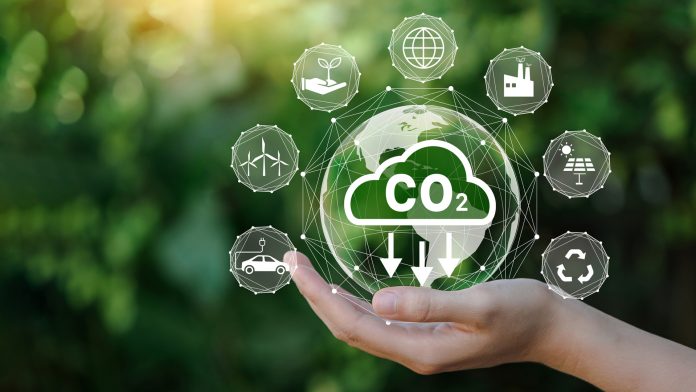The UK government’s Department for Business, Energy and Industrial Strategy recently announced a £54m investment into carbon removal technologies.
On 8 July 2022, the UK government announced that over £54m would be invested into projects that remove carbon emissions from the atmosphere.
The announcement specifically mentioned various topics, including:
- Development of new greenhouse gas removal (GGR) technologies backed by over £54m in government funding;
- Technology that removes carbon emissions from the atmosphere, which is vital for the UK to reach its climate change targets; and
- Developing a new greenhouse gas removal industry in the UK, which could be worth billions to the UK economy and create new jobs.
Novel developments in innovative technologies to remove greenhouse gases, such as carbon, from the atmosphere will be advanced by these government-backed projects across the UK. This will help create new green jobs and put the UK at the forefront of this new industry, which could be worth billions to the UK economy.
The announcement mentioned a total of 15 projects right across the UK, from Edinburgh to Exeter, Swindon to Sheffield, that will benefit from a share of over £54m to develop technologies that remove carbon emissions from the atmosphere. Additionally, this government funding will encourage further private investment into the UK, the creation of new green jobs in these regions, and help the UK meet its emission reduction targets.
Establishing greenhouse gas removal in the UK
The funding will help projects further develop their greenhouse gas removal technologies, which include a machine that can pull carbon dioxide out of the air, a plant to convert household waste into hydrogen for use in the transport industry, and a system to remove carbon dioxide from seawater.
“This £54m government investment announced today will help establish a greenhouse gas removal industry in the UK, which could be worth billions to our economy, bringing in private investment and supporting the creation of new green jobs,” explained Minister Greg Hands from Energy and Climate Change.
The funding comes under phase two of the direct air capture and greenhouse gas removal technologies competition. In total, this competition is worth approximately £60m; in phase one, 23 winners received a share of £5.6m. Of those, 15 have progressed to phase two and will receive a share of the £54.4m announced on 8 July 2022, to effectively create their technologies, which will take their projects through to the demonstration phase, and towards the successful commercialisation of their technologies.
A few of the innovative projects that received funding from this announcement included:
- Advanced Biofuel Solutions in Swindon. This project will receive £4.75m for a plant that can convert gas from household waste into low carbon hydrogen for use in the transport industry;
- Mission Zero Technologies in London. This project will receive £2.9m to build a machine that can pull carbon dioxide out of the air;
- SAC Commercial in Edinburgh. This project will receive £2.9m to develop technology that will capture methane produced from cattle, and reduce emissions from the livestock farming sector; and
- The University of Exeter. This project will receive approximately £3m to develop its ‘SeaCURE’ system to remove carbon dioxide from seawater.
Carbon removal technology: Essential to meet net zero carbon emissions by 2050
For net zero emissions by 2050 to be plausible, it is essential that projects devoted to developing greenhouse gas removal technology are invested in. While the government is working hard to decarbonise the UK and boost energy security by accelerating the transition away from fossil fuels, these technologies will be necessary to offset emissions from hard-to-decarbonise areas, such as parts of the agriculture and aviation sectors.
This recent funding announcement will contribute towards establishing a thriving greenhouse gas removal industry in the UK. Additionally, the government has also recently launched a consultation on greenhouse gas removal business models, seeking advice from stakeholders regarding how the government can help put the UK at the forefront of the sector, by supporting and encouraging investment in this developing industry.
“The UK has world-leading academic and industrial expertise in marine science and technology. The BEIS GGR programme is allowing us to bring this together to deliver a novel climate change solution which builds on the ocean’s natural capture of anthropogenic carbon,” said Professor Paul Halloran, SeaCURE at the University of Exeter.
“The BEIS GGR programme provides vital support for early-stage GGR technology companies, such as Cambridge Carbon Capture Ltd, by providing contracts enabling us to develop a pilot plant and business model necessary to attract the further investment required to scale and commercialise our technology,” added Michael Evans, CEO, of Cambridge Carbon Capture.
“BEIS’s DAC & GGR programme catalyses Black Bull Biochar to build a pathway that rapidly scales greenhouse gas removal. It enables us to bring together industry and agriculture on a pioneering platform that helps the UK overcome barriers to the creation and scale-up of a sustainable, effective biochar network. This will restore our environment, remove carbon, regenerate depleted soils, and thereby enrich our industrial and agricultural systems,” concluded Alex Clarke, Co-Founder and CEO at Black Bull Biochar.









